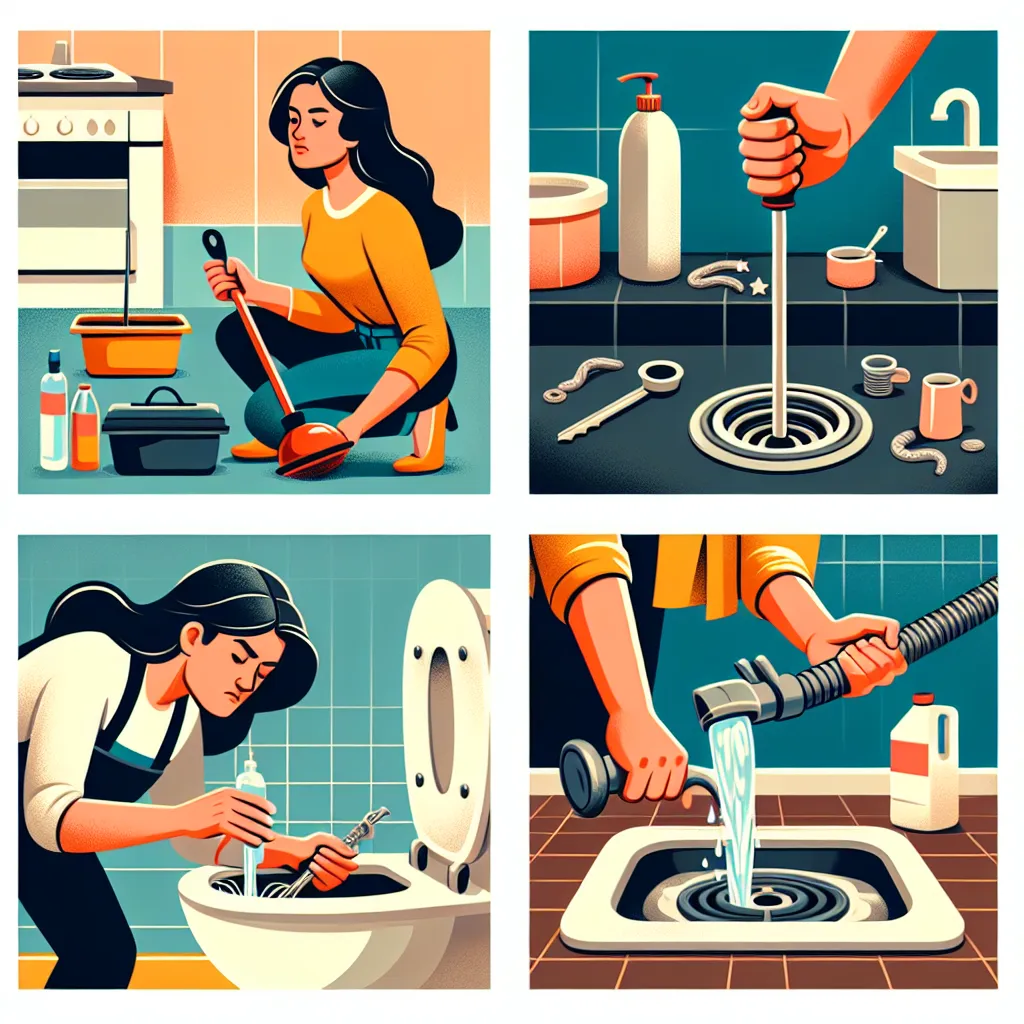Unclog Drains: Effective Solutions for Clearing Blocked Drainage
Unclog Drains: Effective Solutions for Clearing Blocked Drainage
Dealing with a clogged drain can be frustrating and inconvenient. Whether it’s a slow drain or a complete blockage, it disrupts our daily routines and can lead to unpleasant odors and potential water damage. Understanding the causes of clogged drains and knowing effective solutions can help you tackle this common household issue with ease.
Causes of Clogged Drains
Before we dive into the solutions, it’s important to understand the common culprits behind clogged drains. By identifying the root cause, you can prevent future clogs and keep your drainage system running smoothly.
1. Hair
One of the most common causes of clogged drains is hair. Whether it’s from shaving, washing your hair, or simply falling out, hair easily accumulates in drains and traps other debris, causing blockages.
2. Soap Scum
Soap scum is another common culprit. Over time, soap residue can build up on the walls of your pipes, creating a sticky film that attracts other debris and slows down the flow of water.

3. Food Waste
In the kitchen, food waste can lead to clogged drains. Grease, oil, and leftover food particles can accumulate in the pipes, forming stubborn blockages that require immediate attention.
4. Mineral Buildup
In areas with hard water, mineral buildup can become a major issue. Calcium and magnesium deposits can accumulate over time, narrowing the diameter of the pipes and obstructing water flow.
5. Foreign Objects
Occasionally, foreign objects such as toys, jewelry, or sanitary products can accidentally find their way into drains, leading to severe blockages that require professional assistance.
Effective Solutions for Unclogging Drains
Now that we know the common causes, let’s explore some effective solutions for unclogging drains. Whether you prefer natural remedies or rely on store-bought products, there’s a solution for every clog.
1. Boiling Water
For minor clogs, hot water can work wonders. Boil a kettle of water and carefully pour it down the drain in two to three stages, allowing a few seconds between each pour. The hot water helps break down grease and flush away minor blockages.
2. Baking Soda and Vinegar
A natural and popular solution for unclogging drains is using a mixture of baking soda and vinegar. Start by pouring a cup of baking soda down the drain, followed by a cup of vinegar. Let the mixture sit for about 30 minutes, then flush it with hot water. The chemical reaction between baking soda and vinegar helps break down debris and clear the clog.
3. Plunger
A plunger is an essential tool for unclogging drains. Ensure there’s enough water in the sink or tub to cover the rubber part of the plunger. Position the plunger over the drain, creating a seal, and vigorously plunge up and down for about a minute. The pressure created helps dislodge the clog, allowing water to flow freely again.
4. Drain Snake
For more stubborn clogs, a drain snake, also known as a plumber’s snake, can be highly effective. Insert the snake into the drain until you feel resistance, then rotate the handle to break up the clog. Slowly pull out the snake, removing any debris along the way. This method is particularly useful for removing hair clogs.
5. Chemical Drain Cleaners
If natural remedies don’t work, chemical drain cleaners can be an option. However, these should be used with caution, as they contain strong chemicals that can be harmful to both you and the environment. Follow the instructions carefully, and avoid using them on older pipes or as a first-line solution.
Preventive Measures for Future Clogs
Prevention is always better than cure. Once you’ve cleared a clog, take these preventive measures to avoid future blockages:
1. Install Drain Screens
Placing drain screens over your sinks, showers, and tubs can catch hair, food particles, and other debris before they enter the drain. Regularly clean the screens to maintain their effectiveness.
2. Dispose of Grease Properly
Instead of pouring grease down the drain, let it solidify in a container and dispose of it in the trash. This prevents grease from accumulating in the pipes and causing blockages.
3. Regularly Clean Drains
Performing routine maintenance by cleaning your drains can help prevent clogs. Pouring hot water down the drain once a week can help flush away minor debris and keep the pipes clear.
4. Use Hair Catchers
If you frequently deal with hair clogs, consider using hair catchers or traps in your bathroom drains. These simple devices can save you from future headaches and costly repairs.
When to Seek Professional Help
In some cases, clogs can be severe and require professional assistance. If you’ve tried the aforementioned solutions without success, or if you suspect the blockage is caused by a more serious issue like tree roots or a damaged pipe, it’s best to call a licensed plumber. They have the expertise and equipment to diagnose and resolve complex drainage problems.
Conclusion
Clogged drains are an annoying but common issue that can disrupt your daily life. By understanding the causes of clogs and employing effective solutions, you can keep your drains clear and prevent future blockages. Remember to use preventive measures and seek professional help when necessary. With a little knowledge and proactive care, you can ensure your drainage system runs smoothly, maintaining a clean and functional home.
